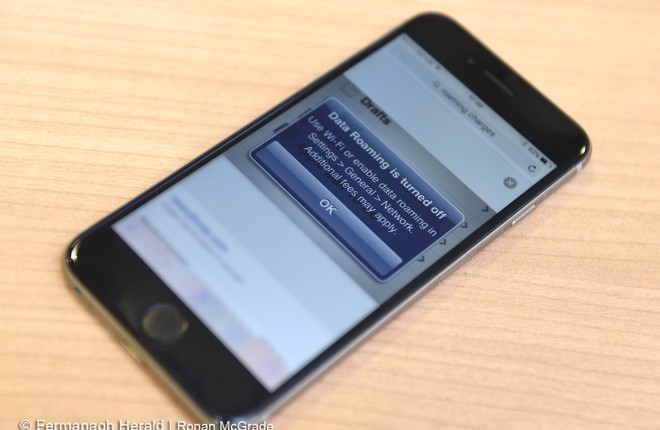
Mobile phone roaming charges could spike after Brexit
A ROSLEA councillor has revealed that he declined to renew his contract with a UK mobile phone company because of the uncertainty regarding roaming charges as a Brexit deadline looms.
In recent days the Government has warned that mobile phone bills for customers living near the border could spike after Brexit.
Papers setting out what could happen if no deal is struck warn how consumers and businesses should be aware of ‘inadvertent’ data roaming – where a stronger signal from the Republic kicks in.
It comes after Brexit Secretary Dominic Raab urged phone companies not to impose roaming charges on customers if Britain crashes out of the European Union.
Vodafone, Three, EE and O2, which cover more than 85% of mobile subscribers, have said they have no current plans to change their approach to mobile roaming once the UK leaves.
However Sinn Fein councillor Brian McCaffrey told the Herald that he spoke with a representative of Vodafone last week regarding a new contract and was unable to get a “straight answer” to his query about roaming charges when Brxit is implemented.
Living near the Monaghan border, the local councillor suggested that the Vodafone worker was unable to give an answer because he did not know what will happen.
Cllr McCaffrey said the concern regarding roaming charges was another on the list of many concerns and uncertainty about the impact of Brexit.
He added, “Roaming charges are a major concern for all along border areas. It is a worry that should not be separated from a litany of other concerns including movement of people and their ability to work on the other side of the border and we have been given no guarantees about farm payments.
“In my own area of Roslea there is continual traffic across the border as well as people moving across both sides to work. All they have is uncertainty about how Brexit will impact their lives in many different ways.”
The British government has said it will legislate to introduce a cap on charges if there is a no-deal scenario. It would set a £45 per monthly billing period limit and force companies to send alerts when 80% of that had been reached.
The government advises that if the UK leaves without a deal, customers should check their operator’s roaming policies, consider switching provider, know how to turn off roaming services and look at using wi-fi for making calls.
If a deal is done, surcharge-free roaming will continue during the transition period.








